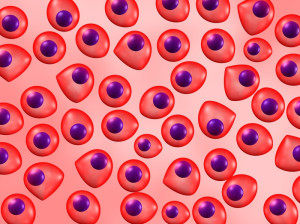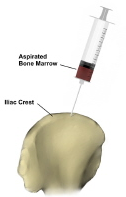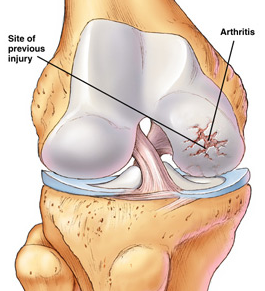Bone Marrow Derived Stem Cell Injections at R3 Stem Cell Centers
Nonsurgical pain management for joint arthritis, such as in the knee, shoulder or hip, has so far consisted predominantly of pain suppressing medicines. This usually entails steroid injections, topical analgesic creams and medications by mouth such as anti-inflammatory medications. What has really been necessary, though, is a treatment that truly alters the underlying problem.

Regenerative medicine provides the opportunity for a real cure with stem cells, platelet rich plasma and growth factors to heal damage. One of the foremost procedures at R3 Stem Cell centers that continues to increase in popularity is bone marrow derived stem cell injections. A person’s own bone marrow contains a substantial amount of the stem cells and additional biologic materials necessary for regeneration, with the added benefit of being low risk and outpatient.
What are bone marrow derived stem cell injections?
The main reason that stem cells are used as therapy for arthritis and other conditions that experience joint pain is that they maintain regenerative properties with the potential to repair and reverse damaged joints.
Bone marrow is a spongy tissue contained inside one’s bones, and makes cells that are crucial to existence including platelets, white blood cells and red blood cells. All of these cells start in the marrow as stem cells, which are basically a “blank slate” type of cell. With a “blank slate”, the cell can then turn into many different types of cells needed in the body including cartilage, tendon or muscle. There are three types of adult stem cells in the human body. The first type of stem cell turns into blood components, with a second destined to become lining of the endometrium.
The third, and most important for musculoskeletal regenerative medicine, are mesenchymal stem cells found in bone marrow. They have been used in animal models to regenerate cartilage and in human models to regenerate bone. (Centeno et al, 2008)
The largest and easiest sources of stem cells for concentrated amounts of bone marrow are in the iliac crest of the hip and the bones of the spine. For the easiest process at R3 Stem Cell centers, the iliac crest is used for the procedures in an outpatient setting.

How are these injections performed?
First of all, the doctor at the center will extract bone marrow from the patient’s hip bone at the iliac crest. The area will be numbed considerably for pain control. With the patient’s ability to quickly make new bone marrow, the harvesting does not present any lasting problem.
Approximately 30 to 60 cc’s of bone marrow is harvested, and it is immediately processed to concentrate down the stem cells and growth factors. Thanks to new technologies and medical advancement, it only takes the stem cell doctor very little time and is not a complicated procedure.
Once the marrow is harvested, it is then placed in a centrifuge and spun until a concentrated substance is obtained consisting of the most important regenerative components. Afterwards, the patient is injected with the substance in the same setting.
Is the procedure painful?
Harvesting bone marrow from the iliac crest may produce slight pain.Plenty of numbing medicine will be used during the procedure though and it is very tolerable. The discomfort may persist for a few days to weeks and slowly subside as the area heals up.
The injection of the prepared bone marrow into the affected joint is no more painful than a typical steroid injection. For a few days afterwards, the joint may have slight increased pain due to the inflammatory reaction generated. This is normal.

Who do Bone Marrow Derived Injections Help?
As with other types of regenerative medicine, bone marrow derived stem cell injections work better for some cases than for others. There have only been small studies so far looking at bone marrow derived stem cell injections in humans. In a 2011 study out of the Beijing Institute of Technology, bone marrow mesenchymal stem cells were shown to have an excellent potential for cartilage production in animals (Li et al, 2011). A recent study in canines showed that bone marrow mesenchymal stem cells were effective in repairing bone defects(Kang et al, 2013).
With the positive results seen in animals, the treatments have been introduced for humans. R3 Stem Cell centers offer Bone Marrow Derived stem cell injections for quite a few conditions such as:
- Spinal Arthritis in facet joints (neck and back)
- Extremity arthritis including knee arthritis, hip arthritis, ankle and shoulder arthritis
- Sacroiliac Joint Arthritis
- Rotator Cuff Tendonitis
- Achilles Tendonitis
- Degenerative Disc Disease
- Lateral Epicondylitis (Tennis Elbow)
- Medial Epicondylitis (Golfer’s Elbow)
- Ligament Sprains
- Muscle Strains
And even some new conditions including:
- Hair Loss
- Peripheral Arterial Disease
How are these injections different from cortisone shots?
Bone marrow derived stem cell injections have the goal of repairing the damaged tissue while providing pain relief too. Cortisone shots simply provide anti-inflammatory medicine to reduce pain but no regenerative cells or reaction that pulls in stem cells or growth factors.

Are There Risks With the Procedure?
With the procedure being outpatient and minimally invasive, the risks are low. But there is a minimal risk of infection, allergic reaction, bleeding, pain at the harvest site, wound drainage and failure to relieve a person’s pain. Risks should be discussed with your treating doctor.
What Are My Options?
R3 Stem Cell offers several treatment opportunities with bone marrow derived stem cell injections for both extremity and spinal joint pain and arthritis. And most are partially covered by insurance!
Request Appointment for Treatment with Bone Marrow Derived Stem Cell Injections today!
